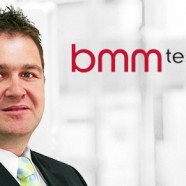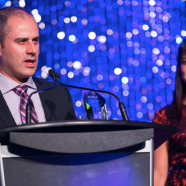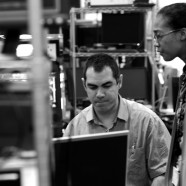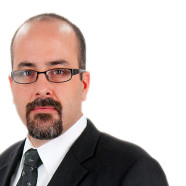BMM Testlabs supporting Asian manufacturers at G2E Asia, 2015
BMM Testlabs supporting Asian manufacturers at G2E Asia, 2015
BMM Testlabs is pleased to announce participation in the upcoming G2E Asia exhibition in Macau, May 19-21, 2015. “G2E Asia is extremely important for BMM as it gives us the opportunity to reinforce our commitment to the ongoing development of the Asian gaming market.” said Kirk White, BMM’s Executive Vice President & General Manager – International. BMM operates a testing Laboratory in Macau, in partnership with the Macao Polytechnic Institute (MPI) and a testlab in Singapore. BMM’s presence in Asia is aligned for the future growth of the region as it continues to cater to the increase in local demand for high quality, thorough and cost effective testing services. BMM also provides educational and gaming product training programs, offered locally in Macau and Singapore, with the support of MPI. White continues “BMM has enjoyed an extremely successful 2014 and we expect to see even further growth in 2015 as we assist new Asian gaming manufacturers understand the technical requirements of the different regulated Asian gaming markets. BMM’s teams of gaming technical experts are able to provide an incredibly high level of support throughout the complex process of product testing and certification in Asia, as well as multiple locations around the world.” White concludes “BMM is looking forward to exhibiting at G2E Asia this year. We will be sending key local and international executives to meet with our existing and new Asian and Global customers at the show and to participate in technical workshops. I would like to encourage all manufacturers and operators to come and meet BMM’s experts to discuss their technical compliance, product testing and game mathematical evaluation needs.” Visit BMM Testlabs, booth #916, G2E Asia, May 19-21,...
Read MoreBMM Testlabs named winners in New Brunswick KIRA awards
BMM Testlabs is pleased to announce that it has been named as a winner in the KIRA awards. The KIRAs recognize the New Brunswick Knowledge Industry and celebrate New Brunswick’s leaders in innovation, entrepreneurism, market entry and expansion, collaboration and growth. The awards are judged by a cross section of industry leaders. BMM has been named the winner in the economic impact category for the oNBoard award. This award recognizes a company or organization that has demonstrated employment growth through strategic and sustainable planning over the preceding two years. Jean Corriveau, Director of Operations for BMM Testlabs in Canada commented, “BMM is honored to have been named the winner for the oNBoard Award. Since we opened operations in Canada in December 2012, growth has been phenomenal as BMM continues to fill the demand for quality testing and QA services. We are now close to 50 employees – proving that New Brunswick is filled with great talent.” The award ceremony took place on May 7th, 2015 at the Fredericton Convention Centre. Corriveau concluded “The ceremony was a great opportunity to celebrate business in New Brunswick and we would like to thank the judges and congratulate all the KIRA awards finalists and...
Read MoreSignature Verification Methodology
By Peter Nikiper, Director, Technical Compliance Your signature, it is on every vital piece of information that identifies you. Your driver’s license, social security card, passport and countless other documents are not complete without a signature. Your signature puts you in debt when you buy a house and out of debt when you sign the last mortgage check. It is the first thing you ask for when meeting a sports star or celebrity. What makes a signature so important is that it is as unique in design as the person that wrote it. The uniqueness of signatures is equally important for verification of gaming software. The ability to distinguish and uniquely identify gaming software media is paramount regardless of whether it is resident on EPROM, flash, CD, DVD or an electronic file. The verification process starts when a manufacturer submits software to a testing laboratory for regulatory compliance verification. The signatures generated by the manufacturer are verified by the laboratory before testing begins to ensure that the software received is the same as represented in the documentation. If an update or modification to the software is submitted during the testing process, the signatures would again be verified to validate the software. Upon completion of testing, the signatures generated by the laboratory are included in the final certification report. These reports are distributed to both tribal and state gaming agencies that use the information in these reports to verify the signatures of software received separately from the manufacturers for installation on the gaming floor. Establishing accuracy of the signatures is proof that the software verified is identical to that which was tested in the laboratory and provides evidence that that the media has not been tampered, physically damaged, and or manipulated. Through the entire testing process from submission to installation on the gaming floor, the game media signature is the most critical aspect of the testing for establishing the integrity of the software. The magic behind the creation of an electronic signature is called a “cryptographic hash algorithm” that is used to generate what is called a “one-way” digest. An ideal cryptographic hash algorithm has four main properties; it is easy to compute the signature value for any given input, it is infeasible to generate an input that has a given signature, it is infeasible to modify an input without changing the signature, and it is infeasible to find two different inputs with the same signature (often called a collision). Some of the most popular algorithms today are MD5, SHA-1, and SHA-256. The MD5 algorithm uses 128-bit encryption to generate a 32 hexadecimal character signature based on the message digest algorithm developed by Ron Rivest, PhD MIT/RSA Data Security in 1992. The SHA-1 algorithm uses 160-bit encryption to generate a 40 hexadecimal character signature based on the secure hash algorithm developed by the National Security Agency (NSA) originally published in 1995. The newer SHA-256 algorithm uses a 256-bit encryption to generate a 64 hexadecimal character signature based on the secure hash algorithm developed by the NSA originally published in 2002. It is important to note that law enforcement and courtrooms nationwide have accepted the MD5 and SHA-1 signatures as the industry standards and have thrown out anything with less than 128-bit cryptographic strength. These algorithms are considered secure, and the specifications on how they work have been placed in the public domain. They are currently in use for signature verification by other technology sectors, and have been verified by trusted organizations such as NIST. There are many ways to obtain signature verification tools that use these algorithms. Test laboratories write...
Read MoreVisit BMM at G2E ASIA 2015
Visit BMM Testlabs at G2E ASIA 2015. We’ll be at Booth 916! May 19-21, 2015 at The Venetian Macao.
Read MoreBMM Testlabs announces conditional certification from the Massachusetts Gaming Commission
BMM Testlabs announced today that it has received conditional certification as an independent testing laboratory by the Massachusetts Gaming Commission (MGC). Travis Foley, EVP Operations – BMM Americas, commented, “We would like to thank the Commission, Executive Director Rick Day and CIO John Glennon for their diligence and attention throughout this process. BMM is looking forward to providing the highest quality testing and certification services in partnership with the MGC.” Foley adds, “BMM is committed to fair competition and market-based choice and we are very pleased to see MGC move forward to implement a multi-lab environment. We congratulate GLI on their MGC conditional certification as BMM believes multiple independent laboratories, while working together, can ensure higher quality testing services, competitive pricing, add transparency and enable more timely delivery of competitive products to the market...
Read More









